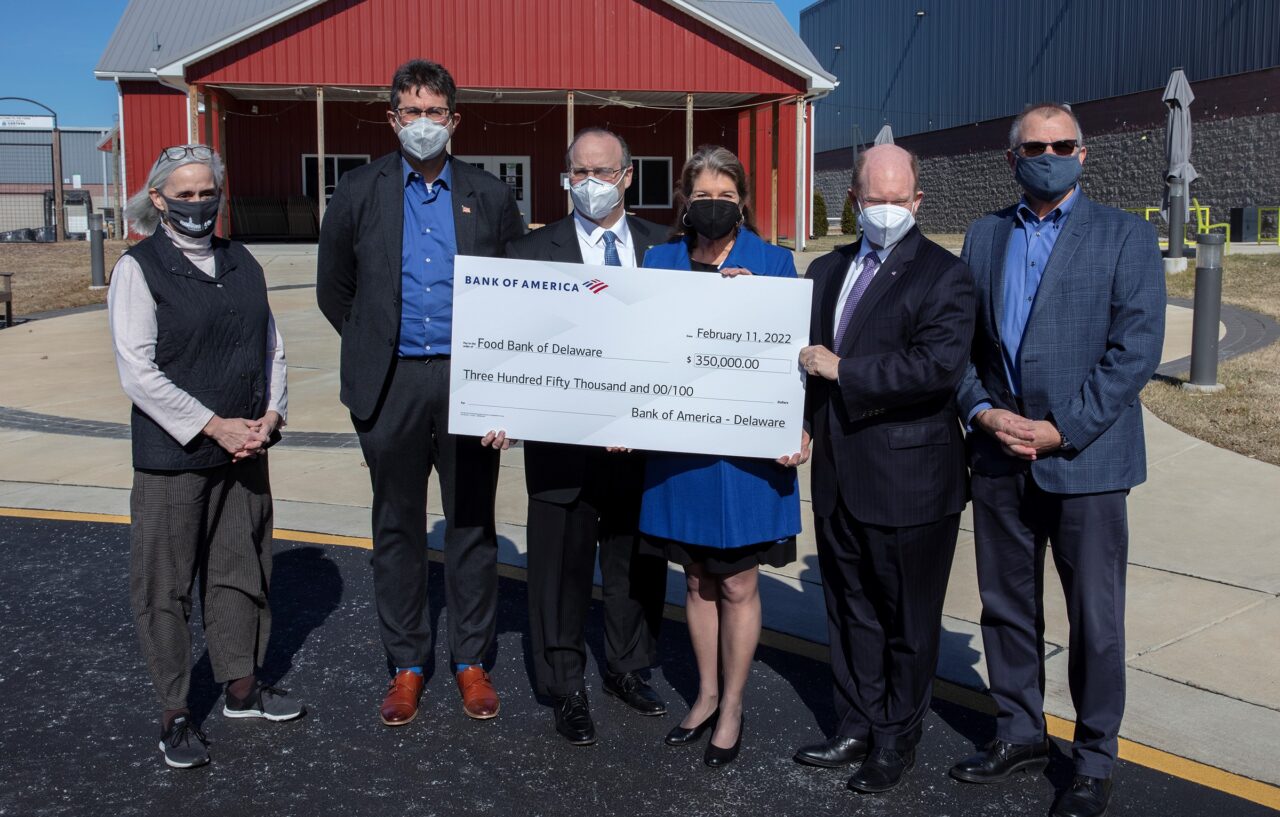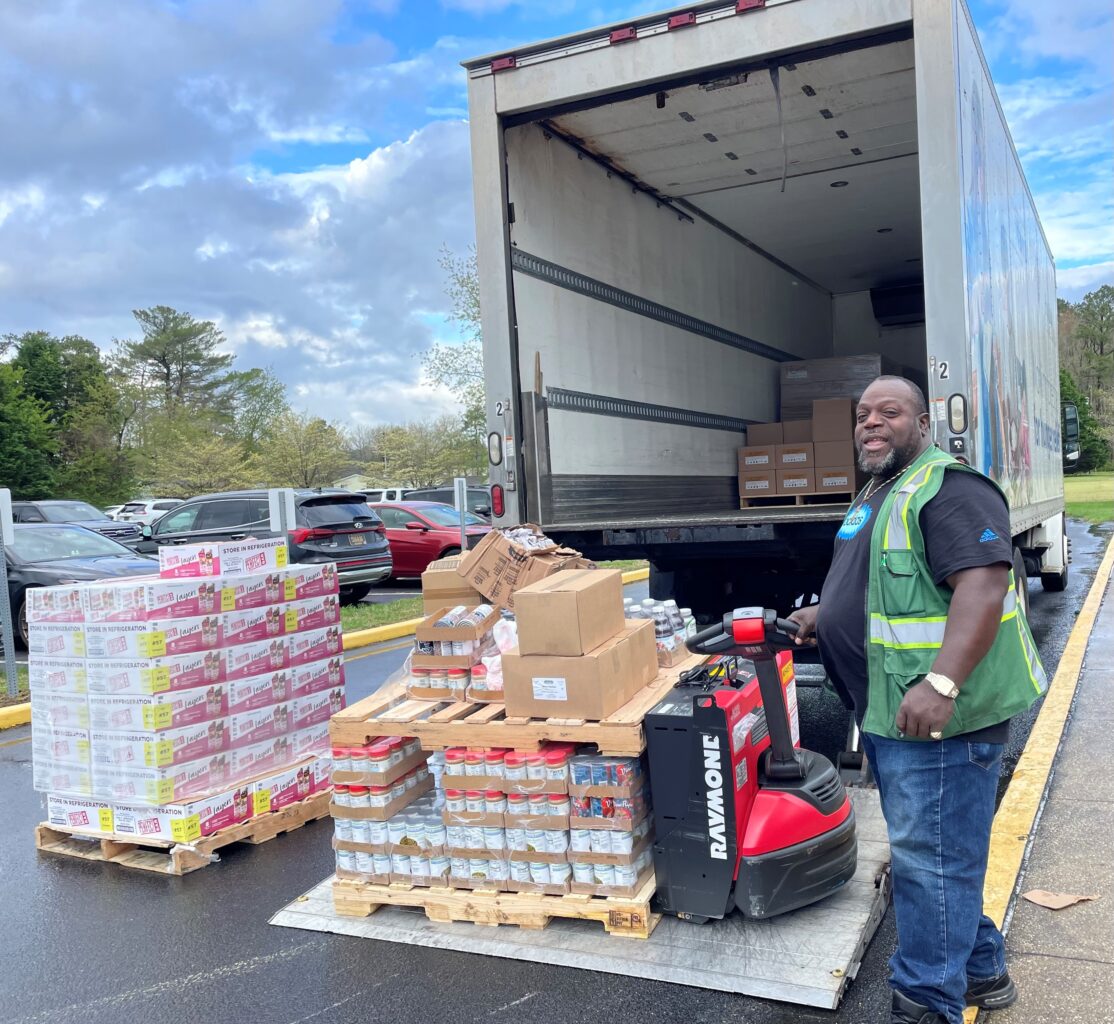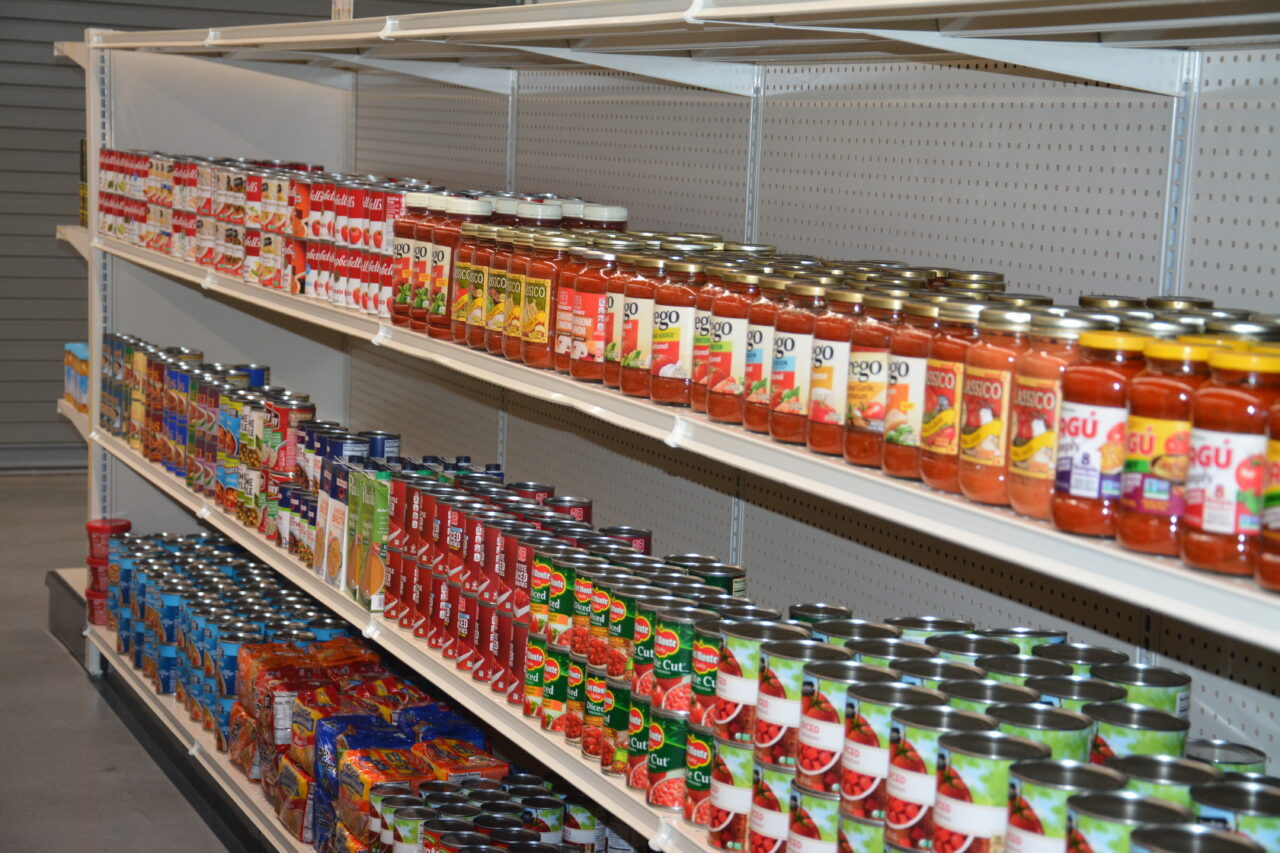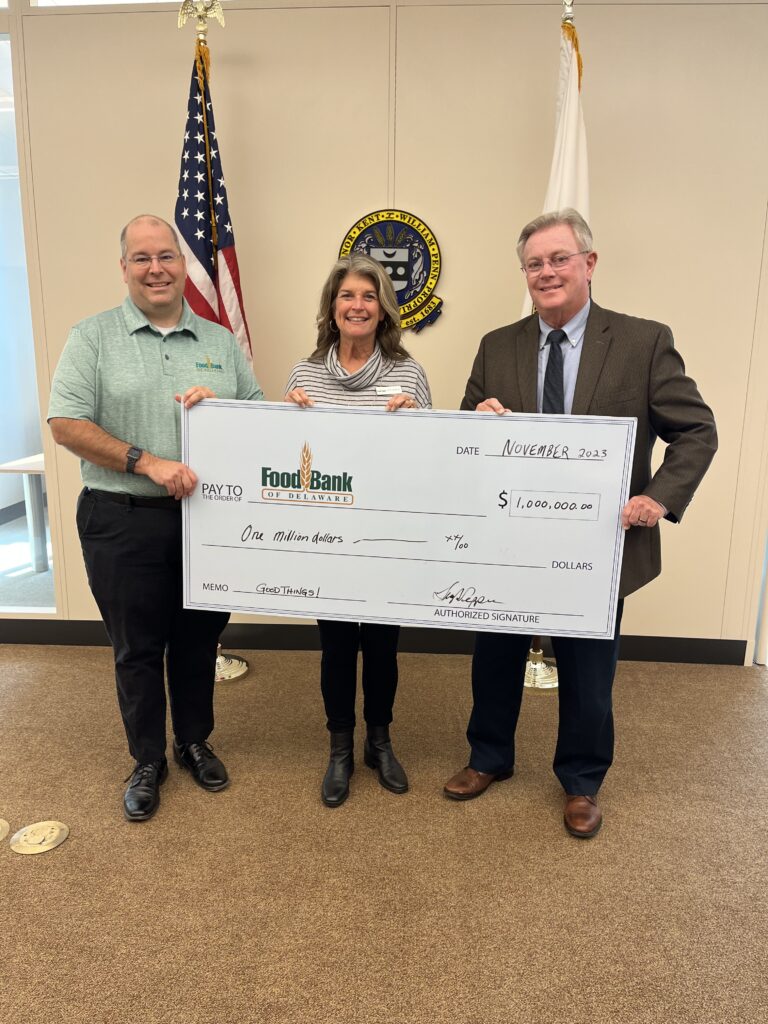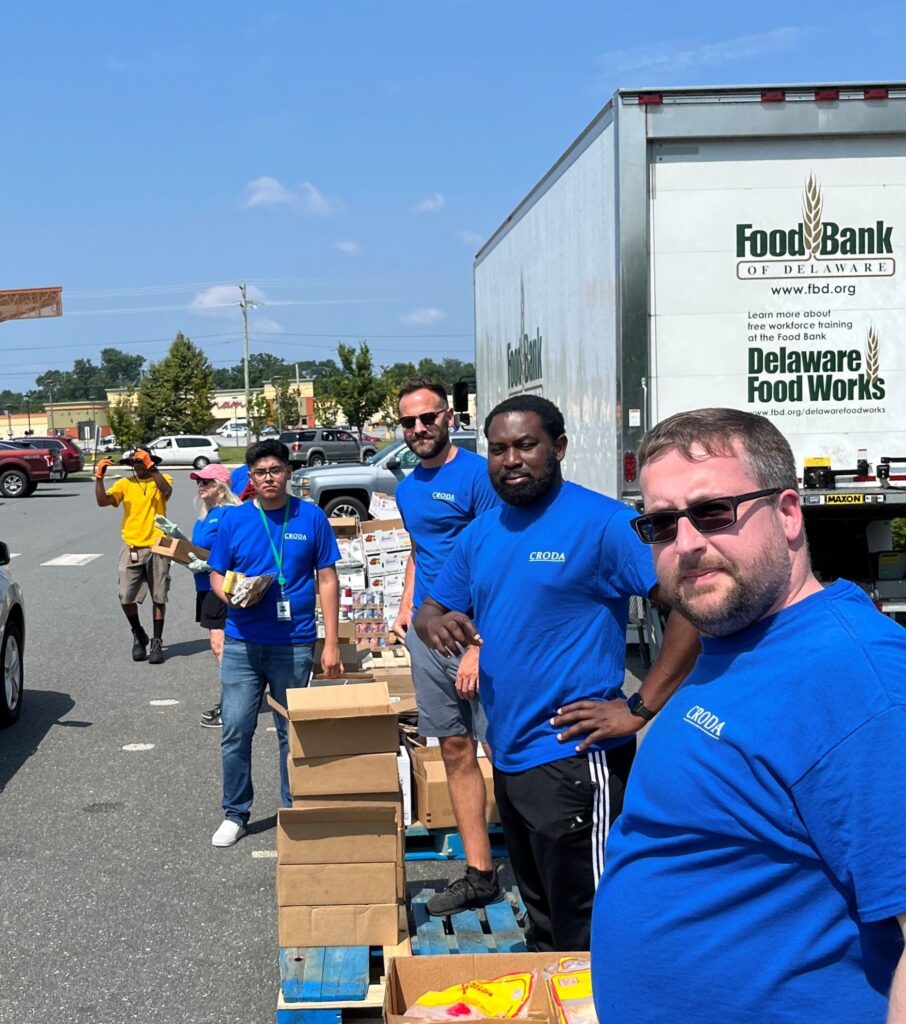Food Bank of Delaware to Provide More Than 1 Million Meals Through Bank of America Employee Booster Initiative
February 11, 2022
Bank of America today announced a $350,000 donation worth over one million meals to the Food Bank of Delaware to address food insecurity in the region. In Delaware, more than 114,000 people are facing hunger, and almost 33,000 of them are children, according to Feeding America. As the pandemic continues, hunger relief organizations in Delaware and across the country are facing ongoing challenges such as increased demand for their services and rising food prices.
Bank of America is supporting its employees’ health and safety while addressing one of the local communities’ most critical needs. Earlier this year, the company announced it would make a $100 donation to local hunger relief organizations and food banks for each employee in Delaware who received a COVID-19 booster shot or vaccine and notified the bank before the end of January. The company made an additional contribution to address the increased need experienced by hunger relief organizations across the country. Since the onset of the pandemic, Bank of America has provided more than $800,000 in funding in support of local hunger relief efforts.
According to the Food Bank, it is estimated that more than 140,000 Delawareans struggled with food insecurity at the height of the pandemic. The Food Bank of Delaware met the increased demand for food assistance by adjusting its operations to add monthly mass food distributions and additional COVID-19 resources for the community. For every $1 donated, the organization can provide three meals to the community.
With help from the bank’s donation, the Food Bank of Delaware is providing 1,050,000 meals to individuals and families throughout Delaware. The bank has been a longtime partner of the Food Bank of Delaware, working together on many meaningful community initiatives related to food insecurity and workforce development, including mobile pantries and culinary training programs.
“We are thankful for Bank of America’s investment to help fight food insecurity in Delaware,” said Cathy Kanefsky, President and CEO, Food Bank of Delaware. “The need for our services grows by the day, and Bank of America’s funding has been critical to our ongoing success. This donation enables us to focus on not only the immediate food needs of Delawareans, but also on the long-term recovery of vulnerable communities who have been hit hardest by the pandemic. For us, long-term recovery includes job and skills-based training opportunities that lead to economic mobility.”
Nationally, the bank has committed $10.6 million dollars to food banks and hunger relief organizations through this effort. Since 2015, Bank of America has donated nearly $150 million toward hunger relief efforts.
“As the pandemic continues to impact Delaware communities, food banks and hunger relief organizations are experiencing increased demand and higher costs to meet the needs of individuals and families,” said Chip Rossi, President, Bank of America Delaware. “Our commitment to help strengthen the communities we live in and serve is unwavering, which is why we are investing in the health, safety and wellbeing of our teammates while also providing funds to help local organizations support our neighbors and fight food insecurity.”
Bank of America committed to donating a minimum of $25,000 in each of the company’s 93 markets to local nonprofit partners as part its vaccine booster effort. Because vaccination boosters and reporting are voluntary and additional company contributions are reflected in the final amount, actual donation amounts differ from the number of boosters reported by bank employees.
The company has encouraged staff to get COVID-19 vaccinations since summer 2021 and has offered incentives such as paid time-off and $500 credits towards health benefit premiums. In partnership with local nonprofits, Bank of America has also distributed more than 38 million masks, 41,000 cases of hand sanitizer and 11 million gloves in local communities as part of its ongoing efforts to address health-related disparities accelerated by the pandemic.


